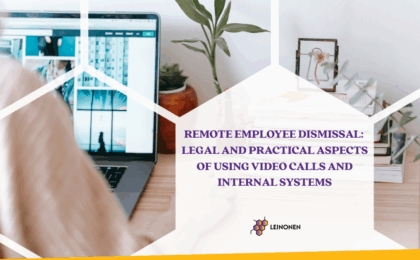Amendments to the VAT Law
Reduced VAT rate
On 4 December 2021, the President promulgated the amendments to the VAT Law adopted on 15 November 2021 by the Parliament [Saeima].
These amendments provide that as of 1 January 2022, the VAT rate of 5% (currently VAT rate of 12%) will be applied to books, including study materials, brochures, booklets, and similar printed work, illustration, drawing and colouring books for children, printed notes and notation, maps and hydrographic or similar schemes, delivery in printed or electronic form, including to delivery of books online or via download.
The VAT rate of 5% will be applied to printed or electronic press and other mass media publications, including newspapers, magazines, newsletters, including that available online or via download, as well as statements of information agencies issued for public distribution, as well as delivery of online publications and their subscription fees.
Along with the amendments, the condition remains that reduced VAT rate is not applied to the delivery of such books, press and other mass media publications of erotic or pornographic nature, whose content and the aim is to publish advertising or commercial advertisements and that consist of audiovisual content or music completely or partially.
New VAT exemption
Along with the amendments, a new VAT exemption has been implemented. Namely, as of 1 January 2022, those services for which the owner of a building or construction has to pay for the lawful use of the land when a building or construction is considered the object of independent property in line with the provisions of the civil law.
Amendments to the Law On State Social Insurance
As of 1 January 2022, the maximum amount of mandatory social contributions is increased from EUR 62,800 to EUR 78,100.
Along with the increase of this threshold (i.e., from EUR 62,800 to EUR 78,100), the threshold from which the liability arises to pay the solidarity tax and increased Personal Income Tax rate of 31% is applied.
Along with the amendments, it is stipulated that when calculating the average salary of the employee for which the state social insurance mandatory contributions have to be made from the minimum object of mandatory contributions, the State Social Insurance Agency considers the minimum object of mandatory contributions that has been calculated and registered in the social insurance information system as at the day when the social insurance benefit or compensation is provided. The state social insurance benefit or compensation is not recalculated if, when calculating or recalculating the minimum object of mandatory contributions, the amount of minimum object of mandatory contributions changes.
Amendments to the PIT Law
On 6 December 2021, the Parliament [Saeima] passed amendments to the Law On Personal Income Tax. Further on, we have summarised the key changes:
Special conditions arising from Latvia’s membership at the European Union
The Law On Personal Income Tax stipulates the free movement of people, goods, services, and capital as provided in the Treaty establishing the European Union, however, not in all cases, the law includes a direct reference to such and similar taxpayer’s rights (for example, tax exemptions to analogous income generated in the other Member States of the European Union or European Economic Area). Interpreting the laws and regulations, the State Revenue Service can conclude application of exemption that arises from the principle of free movement of people, goods, services, and capital as provided in the Treaty establishing the European Union, however, it is required that the taxpayer could be confident about his/her rights. Therefore, to avoid different interpretations of provisions, the PIT Law has been supplemented with a new Clause 6.1 that provides general conditions for applying PIT to the domestic taxpayers and residents of the Member State of the European Union or European Economic Area that the taxpayer has to comply with to calculate the taxable income and PIT payable.
Rights not to apply PIT to the employee’s health care expenses
As of 1 January 2022, the conclusion of the employment collective agreement allows excluding from the PIT taxable income not only employee’s catering expenses in the amount of EUR 480 annually (on average EUR 40 per month), but also employee’s medical treatment expenses within the same limit.
The payment for the use of medical services needs to be supported by a document that shall be submitted and stored with the employer.
Section 9 Paragraph One of the PIT Law has been supplemented with new exemptions from PIT
It is established that a grant provided within the framework of residential housing restoration and increase of energy efficiency support programme to improve the energy class of the building and receive technical support is not PIT taxable, as well as the number of credit liabilities that have been reduced or eliminated by Joint Stock Company “Attīstības finanšu institūcija Altum” within the above programme is not PIT taxable. The above exemption, in line with the transitional provisions, is applicable starting the taxation year 2021.
The PIT exemption is applicable as of 1 January 2022:
- To the support payment of the European Regional Development Fund for improvement of individual heating supply in households;
- Co-financing provided by the local municipality to connect the immovable property to the centralised water supply system or centralised sewerage system;
- Support for covering costs to provide management asbestos waste for households in case of change of roofing slate and heating insulation materials.
Amendments to eligible expenses
- Insurance premium payments for life insurance (with the accumulation of funds)
Currently, in line with Section 10 Paragraph One Clause 6 of the PIT Law, payments of insurance premiums made in conformity with a life insurance contract (with the accumulation of funds) to an insurance company which is founded and operates in accordance with the Law On Insurance Companies and Supervision Thereof or an insurance company which is registered in another Member State of the European Union or European Economic Area state, or Member State of Organisation for Economic Co-operation and Development, in line with the following conditions:
- The term of the life insurance contract (accumulative) is not shorter than 10 years;
- Life insurance contract provides that the claim is paid to the insured person (or his/her beneficiary), other amounts related to the contract or termination thereof are paid to the employer (recipient of insurance) and no loan provision to the insured persons is allowed.
In practice, the annual eligible expenses of taxpayers include premium payments, if the accumulation is created also, for example, for a child.
According to the legislator, the goal of this provision was not to apply tax exemption (eligible expenses) in such cases. Therefore, this provision has been specified and it is stipulated that eligible expenses van include premium payments if the above 10 year’s condition and both conditions below apply:
- The policyholder and the insured person is the taxpayer himself/herself; and
- The provisions of the insurance contract (with the accumulation of funds) provide that the insurance compensation for the insurance event (except for the death of the insured person) is paid to the insured person who is the policyholder, but other amount related to operations or termination of the contract shall be paid to the policyholder who is insured person.
It should be noted that these amendments are applicable for a transitional period until 31 December 2023, during which the insurers have to gather information about their clients and specify the conditions included in the contracts (where a child is provided as beneficiary). As of 1 January 2024, the taxpayer, according to these insurance contracts, can include the insurance premium payments in the eligible expenses only if the insurance contract provisions will be amended providing that the insured person is the receiver or the compensation at the end of the insurance period.
Amendments in regard to applying PIT to leased staff
To ensure clear and unambiguous application of the PIT Law provisions to the income of leased staff, it is stipulated that when calculating PIT from the lease income, the state social insurance mandatory contributions are considered, as well as other payments stipulated by the laws of the other Member States of the European Union or European Economic Area.
In addition to the above, to prevent avoiding PIT, Section 17.1 of the PIT Law has been supplemented with the provision providing that the lessee of staff is identified considering the economic nature and essence of a separate transaction or group of transactions, rather than just the legal form, including (but not limited to) it is assessed whether the contract between the lessee and lessor of the staff is transferred to another person to conduct activities in relation to the economic or professional activity of the other person in Latvia or abroad (in this case, the lessee of the staff is the other person in the favour of whom the staff performs work).
Other amendments
- The non-taxable minimum of pensioners has been increased. In line with the transitional provisions, as of 1 January 2023, the non-taxable minimum will be EUR 6,000 per year (EUR 500 per month). The non-taxable minimum in 2022 is as follows;
- From 1 January 2022 to 30 June 2022: EUR 2,100;
- From 1 July 2022 to 31 December 2022: EUR 3,000.
- Further on, during the taxation year, when PIT is calculated from the income of a professional athlete, the PIT rate of 20% shall be applied instead of 23%.
- To avoid non-compliances and to ensure homogeneous application of the PIT Law, the draft law provides a duty to the non-resident to submit a declaration in all cases if PIT has not been withheld from the person.
- The period when the person receiving royalties has the right not to register as the performer of economic activity is extended in 2022, too.



